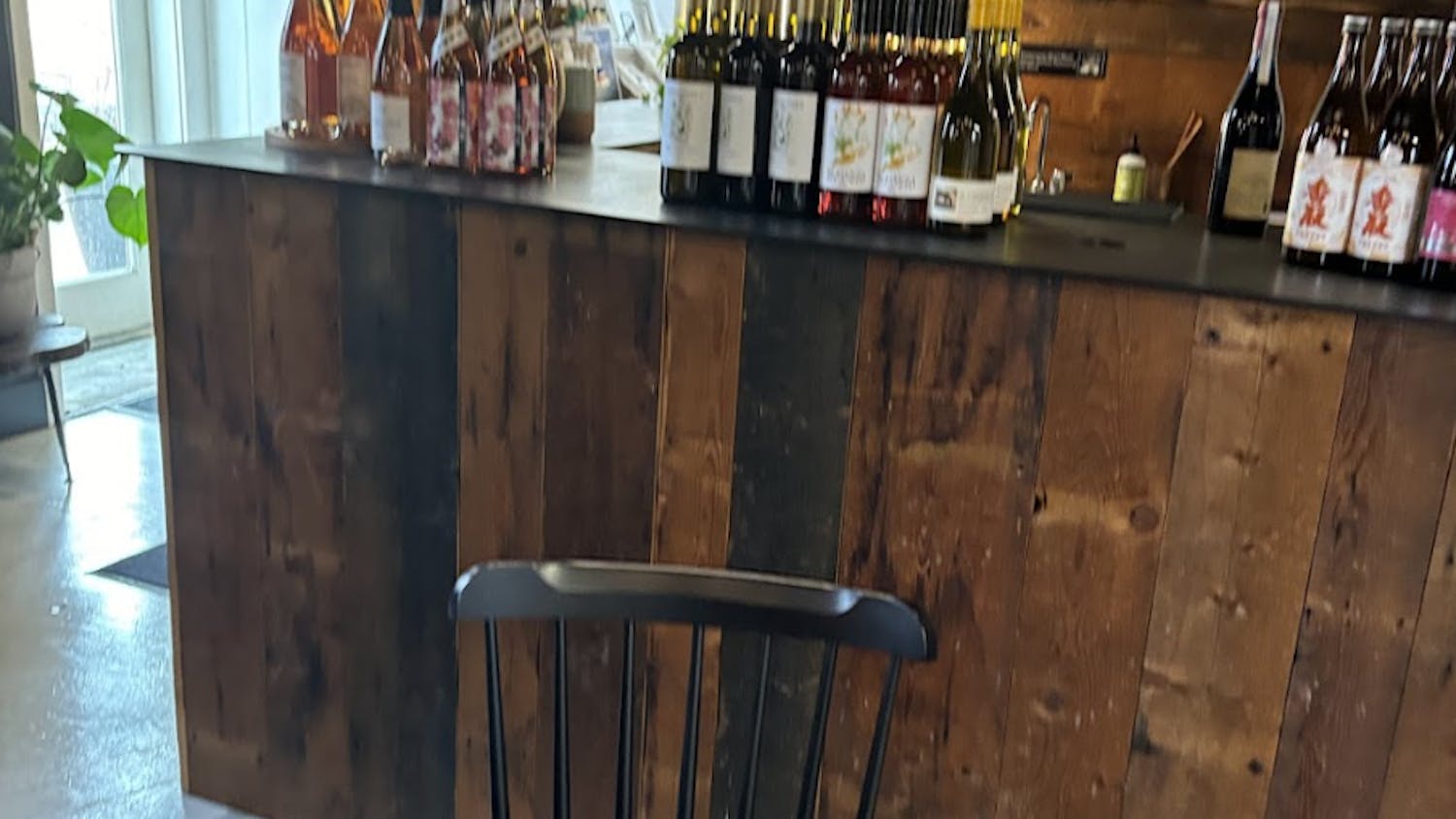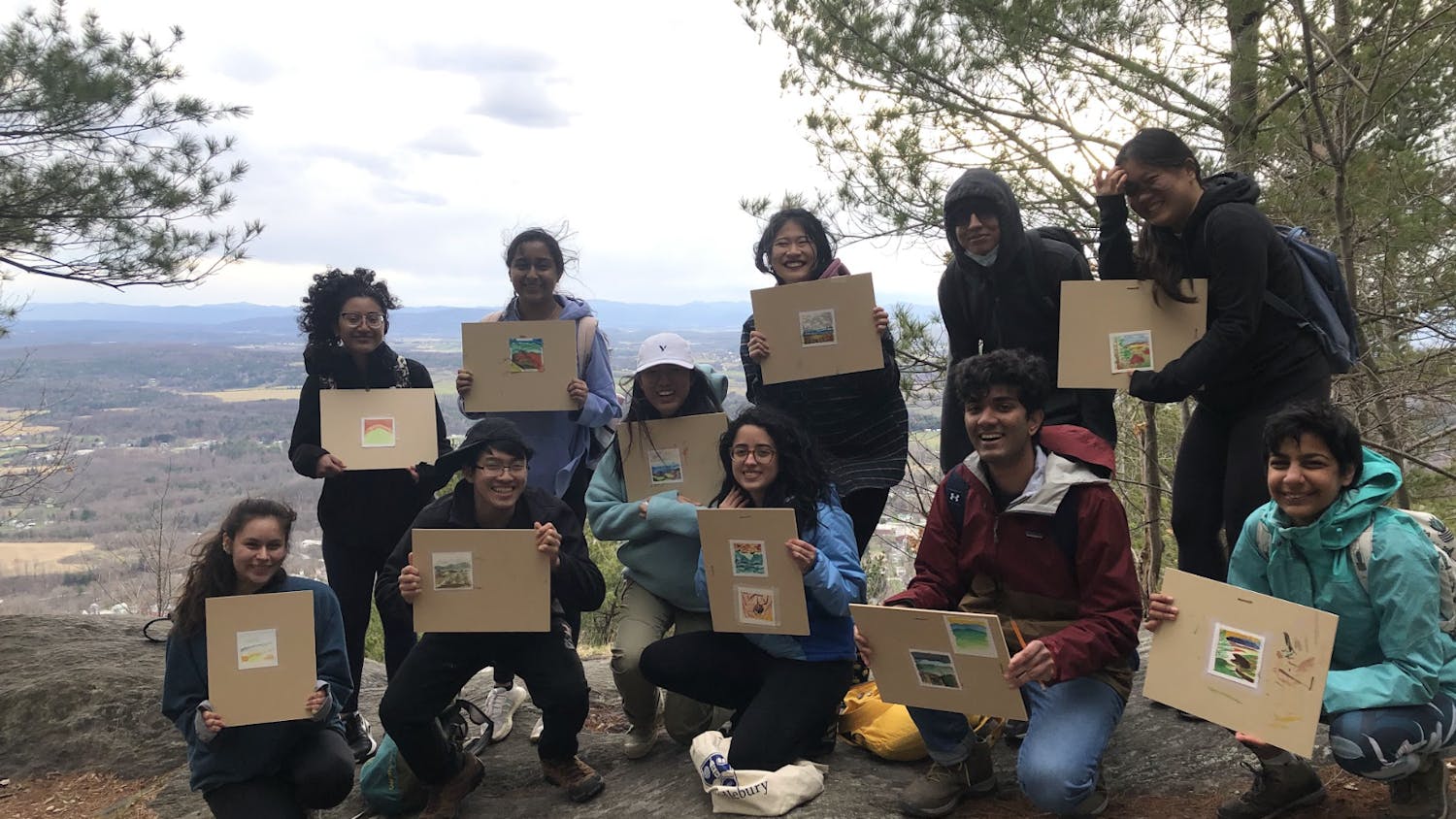Casual, confident, but the stuttering gait and searching eyes betray real fear. “Is anyone I know here?” Methodically spooning lima beans about your spinach, making the salad you didn’t know you wanted, then wandering around to consider, perhaps, if you want to add some feta. Eyes glance up: you look in earnest now. Scanning the backs of heads, you step gingerly into the masses, and then a face … she’s in your Poli-Sci class; she seems cool; you walk up. “Hey. Mind if I sit with y’all?”
Now back teaching a J-term class, people often ask me how Middlebury has changed since I graduated sometime last millennium, and I’ve come to realize that it is the loss of “Proctor Face” that perhaps signals the most basic shift in culture. Proctor was the central dining hall here back then — Freeman and Hamlin (FICs) were small satellites; Lower Proctor was open late for dinner, so populated primarily by sports teams; Ross and Atwater weren’t open — so 90 percent of the campus passed through Proctor for any given meal. It was fantastic. The one thing we all need to do everyday is eat (that other human need — sleep — has always been more elusive), so the wonderful thing about one central dining hall is that you were guaranteed to bump into friends in Proctor.
The difference today is cell phones. While I was in college, only those who wanted to flaunt their wealth in some cosmopolitan urban setting had cell phones; there certainly wasn’t service in Middlebury, Vermont. There was no way to mass-text your friends, “Proctor 5:30?” (Though I realize of course that not everyone does this now). So on any given day, if you didn’t enter Proctor accompanied by friends, you entered alone.
As it is now, all of the food is in the kitchen area, but back then you exited into the great hall of Proctor to fill drinks, get salad, and — if you had entered Proctor alone — to submit to Proctor Face. While you could delay at the salad bar for a time, half filling your plate and half looking for friends, often you were forced to stare into the abyss with that face — casual, confident, but the stuttering gait and searching eyes betraying real fear that maybe, possibly, you wouldn’t find any of your friends eating at that moment. (Once you were sitting down, you would sometimes look up, catching that unmistakable look.)
Now it seems, that spontaneity, that uncertainty of who you might share a meal with, is gone. And along with that loss, I think there is a real shift in the breadth of community. With the capacity to control who you share your meals with, you only rarely sit with someone who you only sort of know, someone who was on your freshman hall or who is in a class, and then, by sharing a meal with them (and maybe their friends), you get to know a new person. You learn something surprising about them. Sometimes, you learn that there’s a reason you haven’t spoken much to them since freshman year, but sometimes you find out they’re going to Vietnam for their semester abroad, and you develop a new friendship. It’s the randomness of community that seems lost with the advent of cell phones on campus. You can plan ahead, control your social schedule based on known company. You can know who is where, when, and so decide whether you want to be there, then. But you lose out on the chance encounter.
So here’s my challenge: go into Proctor or Ross one night with no texted plan to meet anyone. See who you bump into, best friend or distant acquaintance, and maybe share a meal with someone you didn’t intend to. When you’re looking for that as-yet-unknown companion, give the crowd a lil’ Proctor (or, um, Ross) Face.
"Proctor Face"
Comments



